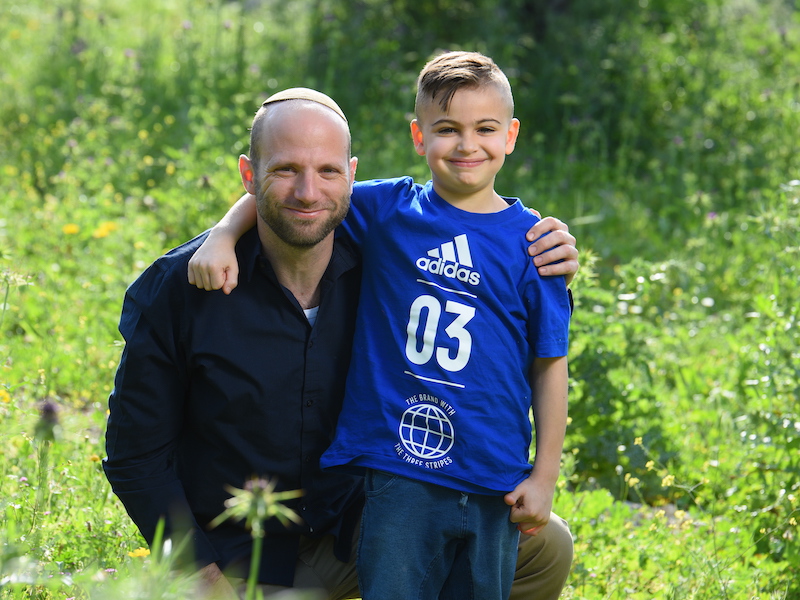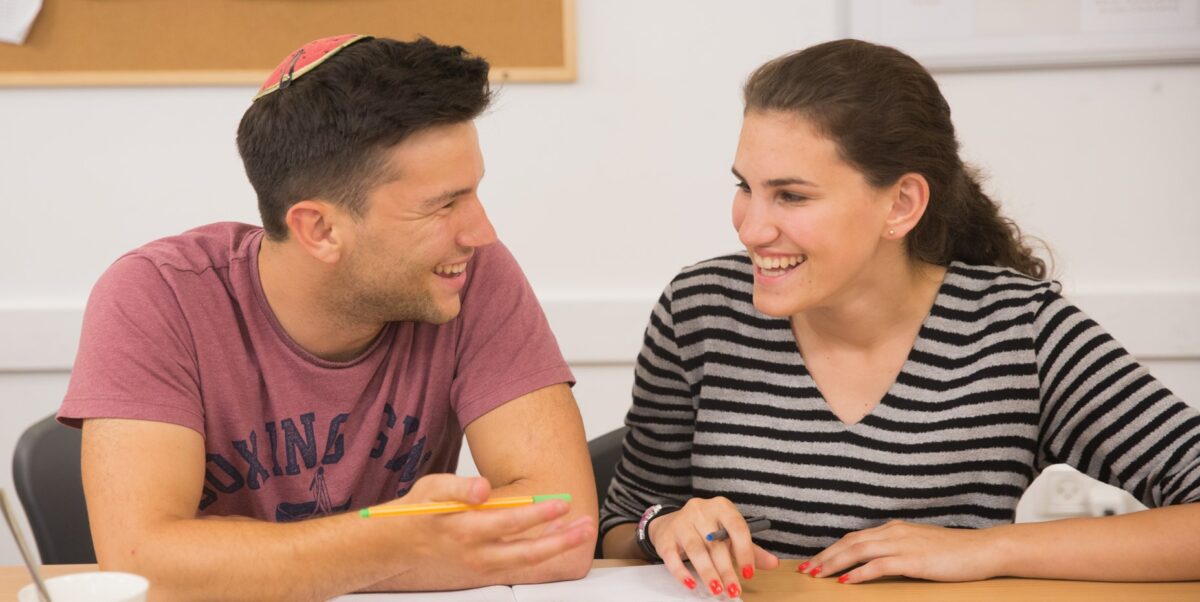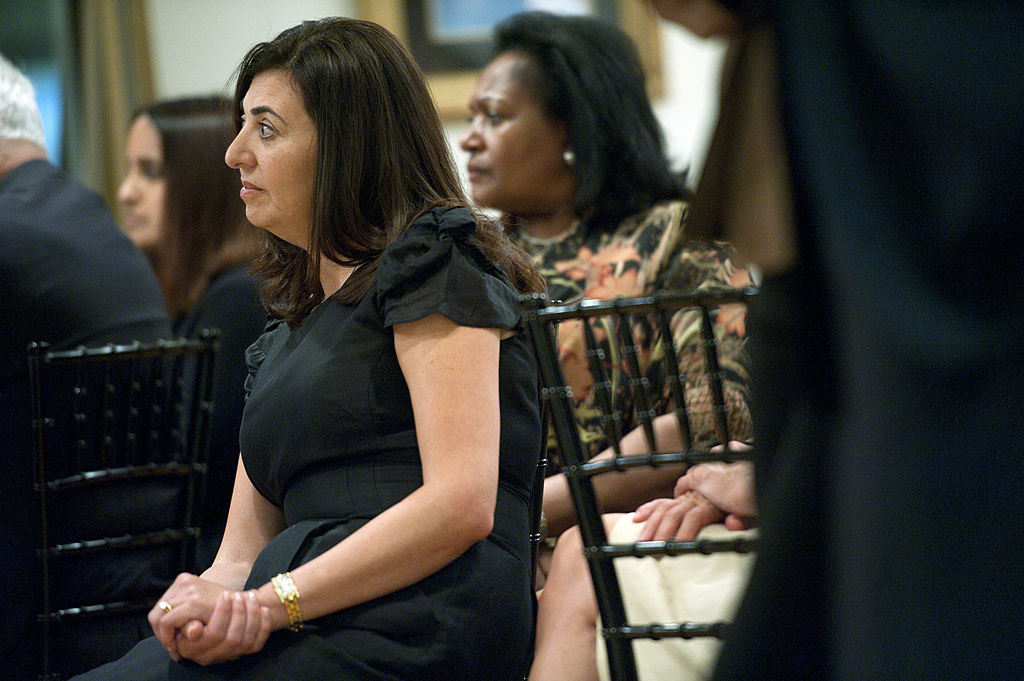Your Daily Phil: New philanthropy platform for high-net-worth donors + Hartman bets on teens and young adults
Good Wednesday morning!
In today’s Your Daily Phil, we cover a new online platform for high-net-worth donors, founded by former IsraAid official Seth Davis. Also featured in today’s newsletter are Yehuda Kurtzer, Joshua Avedon, Danielle Kranjec, Matthew Gould and Adrienne Arsht. Below, Yale’s Jewish a cappella group, Magevet, hopes to expand its reach.
For the past couple of years, Yale University’s Jewish a cappella group, Magevet, has contended with frustration on campus. University policies during the pandemic often meant that members couldn’t gather in person to sing, and singing over Zoom wasn’t fulfilling for singers or listeners.
Last month, the group embarked on a project meant to counteract those limitations and expand the group’s reach: an endowment campaign. Magevet (which means towel in Hebrew), hopes to fundraise $118,000 in partnership with The Jewish Community Foundation of Greater Hartford, in order to secure annual returns of roughly $5,000 that can be used by the group for general operations and trips.
“In the past, our ability to bring our music to different communities has been limited by their ability to cover our expenses,” said Eric Risch, the group’s business manager, in a statement. “With a permanent endowment, the extra income will expand the range of communities we can serve.”
Magevet, which currently has 11 members, has toured internationally, and sings Jewish music in Hebrew and Yiddish, alongside lesser-known languages like the Sephardic language of Ladino; Amharic, spoken by Ethiopian Jewry; and Luganda, the language of the Abayudaya Jews in Uganda.
An endowment seemed like the perfect way to refocus the group following two years of restrictions, and also mark Magevet’s 30th anniversary next April. So members and alumni organized a committee to find partnerships for the endowment, settling on the Greater Hartford JCF. A month after launching the endowment campaign, Magevet has raised a little over $32,000 out of roughly $51,000 in pledges from alumni and parents of current members.
Kathryn Gonnerman, vice president of philanthropy for the JCF (and a Yale alumna), said in a statement that she hopes the endowment will “ensure the group will receive an annual stream of income — forever — to help them sustain a vibrant future.”
MAKING DEALS
A new platform gives wealthy Jewish donors a menu of causes to support

Courtesy of Matnat Chaim
When it came time to search for causes to support, The Goldsmith Family Foundation used to have a staff member who would compile a list of local projects that needed funding. But now, the Baltimore-based foundation doesn’t “have anybody out in the field, bringing us new concepts,” the foundation’s president, Beth Goldsmith, told eJewishPhilanthropy. So when Goldsmith learned about the Giving Group Community (GGC), a membership-based platform that connects wealthy philanthropists to Jewish causes, she signed the foundation up immediately, reports eJewishPhilathropy’s Esther D. Kustanowitz.
Targeting the top: Giving Group Community — which launched in beta late last year — hopes to target high-net-worth Jewish donors with the capacity to give between $100,000 and $10 million per year, and match them with giving opportunities in Israel and around the world. It was founded by Seth Davis, an Israel-based social entrepreneur who served most recently as CEO of the U.S. arm of IsraAid, the Israeli refugee aid group.
Filling the ‘boutique’ gap: “We’ve seen the decline in Jewish giving and Israel giving as a whole, and I found a gap in the marketplace,” Davis told eJP. The high-net-worth demographic, he said, is “being served in other verticals: investment banking, in boutique travel, boutique dating,” but not in philanthropy.
Building a diverse portfolio: Davis said that the platform, which currently has about 70 members, was inspired by crowdsourcing, as well as the success of OurCrowd, a platform that provides investors with investment opportunities in pre-vetted startups and exclusive venture funds. Instead of an investment portfolio, GGC members can build philanthropic portfolios with a mix of causes: some that members are already passionate about, and others they hadn’t previously funded, which donors can “test the water with,” by making smaller donations, Davis said.
INTRODUCING WELLSPRING
It is time to make big bets on teens and young adults

Courtesy of Shalom Hartman Institute of North America
“If there is a consistent thread that I can identify in virtually all the key inflection points along my journey as a Jewish communal leader, it is this: older and wiser people giving me the gift of trust, which enabled me to grow. For a Jewish community that is struggling with questions of whether we have a sufficient leadership pipeline for the Jewish future, and that is anxious about the ideas and identities of the next generation of Jews, this may be our winning strategy,” writes Yehuda Kurtzer, president of the Shalom Hartman Institute of North America, in an opinion piece for eJewishPhilanthropy.
Predicated on fear: “Today I find that way too much American Jewish education is predicated on fear of the Jewish future rather than enthusiasm for it. On Israel, many educational interventions seem to want students to become advocates for Israel rather than really understand it. For all the worry that older Jews have about what Jewish students face on campus, a lot of our responses involve speaking for and over our students. Is it any wonder that the leadership pipeline for the Jewish community is drying up, or turning against the Jewish community itself?”
A new pathway: “It is time to try a different approach. We need to start trusting young Jews more, earlier in their path toward Jewish leadership, and to give them the tools of competence and confidence in understanding our tradition and paving the way to our future. I believe that young Jews are passionate about Judaism, Israel and the challenges facing our time. I see their desire to play a role in shaping the future of our community and its institutions. They now need a major investment and pathways to lead.”
Introducing Wellspring: “At the Shalom Hartman Institute, we are making a big bet on this approach: a new center for transformative supplemental Jewish education for teens and young adults ages 15-25, and the professionals who serve them, with a comprehensive strategy that aspires to replenish the fountain of talent that will lead the Jewish people in North America into the next generation. We’re calling it ‘Wellspring.’”
SHIFTING SAND
Do these stats about 21st-century Jewish orgs sound right to you?

Barcin
“Do these stats about 21st-century Jewish organizations sound right to you? Only 4% have environment, sustainability or food as their primary mission focus; Just 43% are led by women; and 30% don’t use any social media at all to communicate with constituents. No? That’s because they aren’t right. And they’re wrong because this information is more than a decade old. Without current data we are all flying blind into the future. That must change now,” writes Joshua Avedon, CEO and co-founder of Jumpstart Labs, Inc., in an opinion piece for eJewishPhilanthropy.
Old data: “In the decade that has passed since the last comprehensive scan of Jewish startups, much has changed, and much remains unexamined. As documented in ‘The Innovation Ecosystem: Emergence of a New Jewish Landscape’ (2009) and ‘The Jewish Innovation Economy: An Emerging Market for Knowledge and Social Capital’ (2010), hundreds of organizations are powering an innovation boom pioneering solutions that the Jewish world desperately needs. And very little data has been collected about how that landscape has evolved over the past 10 years.”
Changed priorities: “Previous research showed that while 20th-century organizations prioritized Jewish literacy and education, identity, peoplehood, Israel-as-homeland and Judaism-as-religion, newer organizations have different priorities. The growth of the Jewish environmental, outdoor, food, farming and related sustainability movements; the renewed interest in social justice and world repair (often in partnership with organizations and coalitions that are not explicitly Jewish); the creativity in Jewish arts & culture (especially in pop culture); the deployment of technology to advance Jewish values and priorities; and the recognition of the racial and ethnic diversity among the Jewish people all support a landscape that blurs secular and sacred, links particular and universal and prizes relevance and meaning over rote adherence to tradition.”
Worthy Reads
Age of Experience: Employers tend to overlook qualified, valuable applicants because of age, Duke Haddad writes in NonProfitPRO: “Reasons employers should employ older workers are their experience, both professionally and personally, reliability with a strong work ethic, and cost-effectiveness since they tend to remain at the job longer. Seasoned employees also have a great deal of confidence and experience. This attribute rubs off on younger workers. Age diversity is also wise, as major gift prospects, principal gift donors, volunteers and board members tend to be older. These segments relate very well with older employees… These individuals tend to stay with organizations, which helps build long-term relationships with your nonprofit constituencies. They have life experiences they can share with their donors. They are enthusiastic and speak just like the individuals most likely to give to your organization.” [NonProfitPRO]
Hard Times Down Under: While everyone is concerned with inflation, rising cost of living and experiencing difficulty in making ends meet have been constant pressures for hundreds of thousands of Australians for years, Stacey Thomas writes in Australia Pro Bono, suggesting a shift in philanthropic mindset to help change the conversation about financial hardship in Australia: “Lead with empathy. Some of us may be feeling the pinch ourselves which can make it a little easier to relate to another’s financial struggles. But if that isn’t the case, remember to lead with empathy rather than sympathy. Try to understand what someone else is going through, rather than how you think you personally would approach it… If you are providing direct support to a person or family, no one knows what they need better than they themselves do. Give people the control to choose the support they need and what will work best for them.” [AustraliaProBono]
Community Comms
Be featured: Email us to inform the eJP readership of your upcoming event, job opening, or other communication.
Word on the Street
A certificate program in Judaica librarianship is being launched by the Association of Jewish Libraries and the Jewish Theological Seminary. The yearlong online course starts in spring 2023…
The Jewish community in Las Vegas, N.M., is attempting to purchase back the 19th-century building that was the site of the New Mexico Territory’s first synagogue, which has been owned by the Archdiocese of Santa Fe since the 1950s…
Yeshiva Gedolah, located in the Washington Heights neighborhood of Manhattan, has purchased the property of former Congregation Kol Ami in Elkins Park, Pa., and is set to open there for the 2022-23 school year…
Thousands of Jewish Ukrainian schoolchildren returned to school Sept. 1 at the network of hundreds of schools maintained by Chabad-Lubavitch emissaries in the war-torn country and throughout the former Soviet Union…
Danielle Kranjec is returning to Hillel International as associate vice president of the organization’s Meyerhoff Center for Jewish and Israel Education…
Matthew Gould, a popular former U.K. ambassador to Israel, will become director-general of the Zoological Society of London effective next week…
The University of California San Diego announced a $150 million commitment from T. Denny Sanford to bolster the school’s stem cell research and regenerative medicine programs and fund related projects to be conducted aboard the International Space Station…
Philanthropist Adrienne Arsht has sold her Miami-area estate for nearly $107 million. When Arsht first listed the home, she indicated she would donate the proceeds of the estate’s sale to charity…
Pic of the Day

KKL-JNF
The national workers’ organization of KKL-JNF held an end-of-summer event at the Dana Dwek Children’s Hospital-Ichilov with the children’s entertainers Michal Haktana (left) and singer Dudu Aharon (right). During the event, 30 laptops were gifted to various hospital departments for the children’s use, along with toys and sweets that were distributed to the children and their families.
Birthdays

The Washington Post / Getty Images
Former Bahraini ambassador to the U.S. (2008-2013) after four years in the Bahraini Parliament (2005-2008), both firsts for a Jewish woman, Houda Ezra Ebrahim Nonoo…
The first Druze woman to become a Member of the Knesset, she has served since 2019, Gadeer Kamal Mreeh…
Former member of the U.S. House of Representatives and mother-in-law of Chelsea Clinton, Marjorie Margolies… Institutional investment banker and a former U.S. Ambassador to El Salvador (2007-2009), Charles L. Glazer… Philanthropist and the vice-chair of the Museum of Jewish Heritage, Ingeborg Rennert… British businessman, co-founder with his brother Charles of advertising agency Saatchi & Saatchi, appointed to the House of Lords in 1996, Baron Maurice Saatchi… UK cabinet minister in both the Thatcher and Major governments, Sir Malcolm Leslie Rifkind… Creditors rights’ attorney at Chicago-area Blitt & Gaines, David Stephen Miller… Retired managing editor and writer at The Washington Post for 33 years, Peter Perl… Member of the Knesset for the Yesh Atid party since 2013, he was appointed as Speaker of the Knesset one week ago, Mickey Levy… CEO of Amir Development Company in Beverly Hills, Keenan Wolens… Punk rock singer and songwriter, known as the Gangsta Rabbi, Steve Lieberman… Washington Institute fellow and adjunct professor at Johns Hopkins SAIS, David Makovsky… Senior editorial manager at the Aspen Institute, he is a Pulitzer Prize-winning journalist and author, David L. Marcus… Co-founder and executive editor of Axios, Mike Allen… National education policy reporter for The Washington Post, Laura Meckler… Green Bronx Machine’s Tanya Rebecca Singer… Yale Law School graduate and author, Abigail Krauser Shrier… Public affairs consultant based in Manhattan, Sam Nunberg… Co-founder and CEO of Kaggle, a data science platform acquired by Google in March 2017, Anthony Goldbloom… Manager of publicity at Netflix, she was previously a communications officer at the U.S. Holocaust Memorial Museum, Jacqueline “Jackie” Berkowitz… Director at Saban Capital Group, Amitai Raziel… Executive director at Hunter Hillel, Merav Fine Braun… Editor for programming and social media at CNN Politics, Madeleine Morgenstern… Singer-songwriter known as ‘Jeryko,’ Yaniv Hoffman… Singer-songwriter and actor, Max Schneider…
Email Editor@eJewishPhilanthropy.com to have your birthday included.








